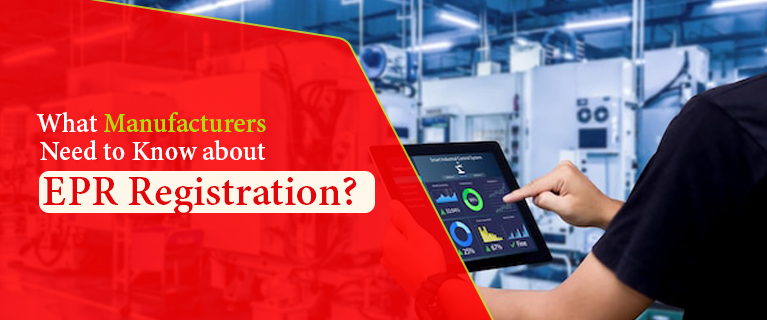The Economic Benefits Of EPR Registration
Extended Producer Responsibility (EPR) registration has gained significant attention in recent years as a sustainable waste management approach. EPR shifts the responsibility for managing post-consumer products from consumers and municipalities to producers. While the primary aim of EPR is environmental stewardship, it also offers a range of economic benefits. In this blog, we will explore the economic advantages of EPR registration, including cost savings, resource efficiency, job creation, market differentiation, and fostering a circular economy. Understanding the economic benefits of EPR can incentivize businesses to embrace this approach and contribute to a more sustainable and prosperous future.
1. Cost Savings through Efficient Resource Management
EPR registration promotes efficient resource management , leading to cost savings for businesses. By adopting practices such as product design for recycling, material recovery, and reuse, producers can minimise raw material consumption and associated costs. EPR encourages the development of closed-loop systems, where materials from end-of-life products are reintroduced into the manufacturing process, reducing the need for virgin materials. This not only saves costs but also enhances resource efficiency and reduces dependence on scarce resources.
2. Job Creation and Economic Growth
Implementing EPR registration systems requires the establishment of collection, sorting, recycling, and recovery infrastructure. These activities create employment opportunities across the value chain, from waste management and recycling facilities to research and development in sustainable technologies. Job creation in the waste management sector contributes to economic growth, stimulates local economies, and enhances social well-being. EPR registration can catalyse the development of a green economy, fostering innovation and creating sustainable livelihoods.
3. Market Differentiation and Competitive Advantage:
EPR registration demonstrates a commitment to environmental sustainability and responsible product stewardship. It allows businesses to differentiate themselves in the market by showcasing their environmentally conscious practices. EPR-registered companies often enjoy a competitive advantage by meeting consumer expectations for sustainable products. As environmental consciousness continues to grow, customers are more likely to choose products from EPR-registered companies, giving these businesses an edge in the marketplace.
4. Fostering a Circular Economy:
EPR registration plays a crucial role in fostering a circular economy. By encouraging producers to take responsibility for their products throughout their lifecycle, EPR promotes the recovery, recycling, and reuse of materials. Thereby reducing waste generation and conserving valuable resources. The circular economy approach creates opportunities for businesses to develop innovative business models, such as product-as-a-service or remanufacturing, which contribute to long-term economic sustainability.
Read Also This - EPR Registration in the Digital Age5. Increased Efficiency in Waste Management:
EPR registration streamlines waste management processes by creating a structured and organized system for collecting, sorting, and managing post-consumer products. Producers take on the responsibility of coordinating and financing collection programs, leading to more efficient waste management practices. This improves overall waste management infrastructure, reduces the burden on municipalities, and optimizes the use of resources, including waste treatment facilities and landfill space.
6. Regulatory Compliance and Avoidance of Penalties:
EPR registration ensures compliance with waste management regulations and policies. By adhering to EPR obligations, businesses avoid penalties and legal consequences associated with improper waste disposal or non-compliance. Registering under EPR frameworks demonstrates a commitment to meeting regulatory requirements and operating responsibly, protecting businesses from potential financial and reputational risks.
7. Access to New Markets and Increased Customer Trust:
EPR registration enhances access to environmentally conscious markets. As consumers become more aware of the environmental impact of products, they seek sustainable alternatives. EPR-registered companies can tap into these markets, positioning themselves as trustworthy and eco-friendly brands. Meeting EPR requirements instills confidence in customers, demonstrating that the company is actively working towards reducing its environmental footprint.
8. Strengthening Corporate Social Responsibility:
EPR registration aligns with corporate social responsibility (CSR) objectives. By taking responsibility for product waste, companies demonstrate their commitment to sustainable business practices. EPR encourages transparency, accountability, and engagement with stakeholders, fostering a positive corporate image and enhancing brand reputation. EPR registration enables companies to integrate environmental stewardship into their CSR initiatives, contributing to the well-being of communities and the planet.
Read Also This - The Importance of EPR Certification in Sustainable Waste ManagementConclusion:
EPR registration offers compelling economic benefits that go hand in hand with environmental sustainability. By embracing EPR, businesses can achieve cost savings, drive resource efficiency, create jobs, differentiate themselves in the market, and contribute to a circular economy. Additionally, EPR ensures regulatory compliance, enhances customer trust, opens new market opportunities, and strengthens corporate social responsibility. As businesses recognize the economic advantages of EPR registration, it becomes a win-win approach that not only benefits the bottom line but also contributes to a more sustainable and prosperous future for all.




Comments
Post a Comment